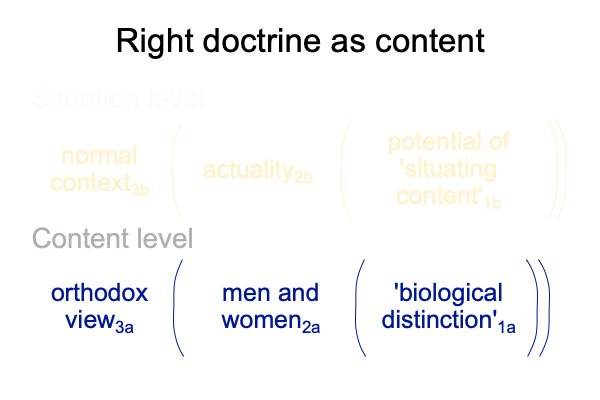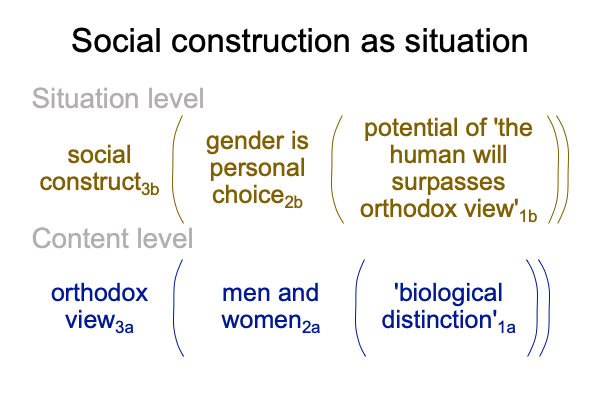Looking at Gad Saad’s Book (2020) “The Parasitic Mind” (Part 1 of 17)
0001 Professor Gad Saad is an expert in applying evolutionary psychology to contemporary consumer behavior. He publishes a book, titled, The Parasitic Mind: How Infectious Ideas Are Killing Common Sense. The cover of the book is adorned with a graphic. A hand holds one end of a thread that goes on to become a line drawing of the human neocortex. Is the thread going into the head? Or, is the thread (of common sense) coming out of the head?
I suppose I have to read the book to find out.
0002 Saad gets into the push-pull operation in chapter four, titled, “Anti-Science, Anti-Reason and Illiberal Movements”. He lists four contemporary academic beings… er… parasites: postmodernism, social constructivism, radical feminism and transgender activism. Each movement… er… parasite is founded on a demonstrable falsehood. Each desires to be free from reality.
For these comments, I use gender as an example.
0003 In order to diagram these statements, I consult A Primer on the Category-Based Nested Form and A Primer on Sensible and Social Construction. These primers, by Razie Mah, are available at smashwords and other e-book venues. They are not long. They are very informative.
0004 A parasite feeds off a host.
The host goes with the content-level. The parasite places content in an alternate situation.
0005 I begin with the host. The host takes the actuality of men and women2a, which emerges from a biological distinction (which, in turn is an actuality in another nested form)1a in the normal context of an orthodox view3a. The term, biological distinction1a, is short for the potential of sexual dimorphism, as expressed in humans1a. Roughly, “ortho” means “right” and “dox” means “doctrine”.

0006 Obviously, this content-level is scientifically, reasonably and liberally situated by cognitive psychology and its companion discipline, evolutionary psychology. Evolutionary psychologists explain the findings of cognitive psychologists in terms of natural selection and genetics: adaptations and phenotypes.
0007 The social constuctivist approach runs opposition to cognitive (and evolutionary) psychology. The social constructivist claims to situate the orthodox view, with the possibility that biological distinctions are irrelevant. Instead, only the human will is relevant. Gender is a personal choice. Gender is an act of the will.
The resulting situation-level nested form looks like this.

